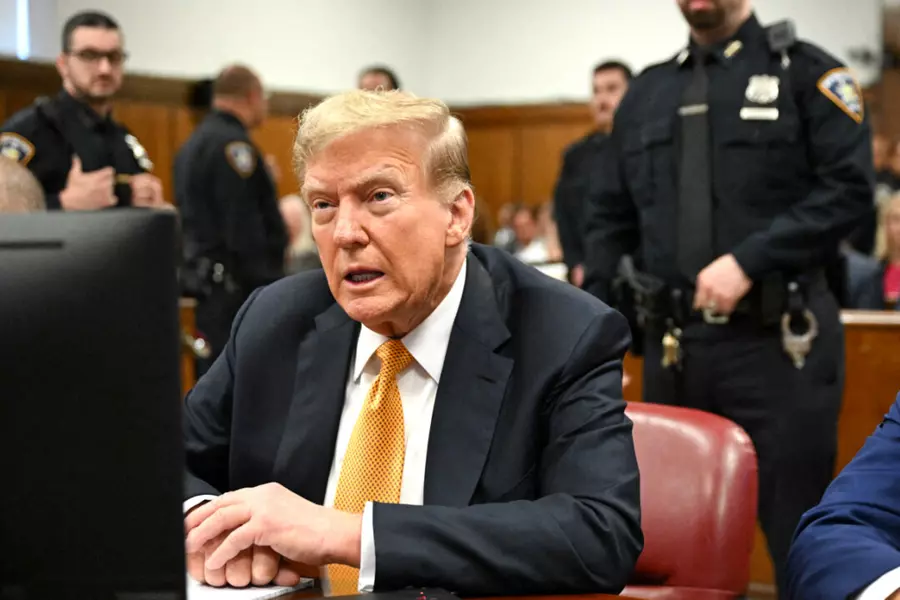Former President Donald Trump’s trial in New York is nearing its conclusion, with the prosecution and defense scheduled to summarize their cases on May 28th, allowing jurors to deliberate over their verdict. The Manhattan District Attorney has charged Trump with 34 counts of falsifying business records in the first degree, to which he has pleaded not guilty.
Throughout the trial, prosecutors have presented emails, texts, phone call logs, contracts, and other documentation as evidence of a scheme intended to influence the 2016 presidential election and later conceal it through the creation of 11 payments made to ex-lawyer Michael Cohen. Prosecutors argue that these records speak for themselves and serve as evidence of intent to defraud.
However, some of these records are of mixed relevance, with some directly related to the $420,000 payment made to Mr. Cohen while others consist of unrelated text conversations or book excerpts from older Trump books on business advice.
During jury selection, prosecutors used a hypothetical situation involving a man hiring a hitman, which seemed to annoy the defense team, who argued that even if the man didn’t pull the trigger himself, he would still be guilty. Prosecutors may remind jurors that they only need to show President Trump caused false records to be created, not necessarily that he created them himself.
The rest of the 22 witnesses called by the prosecution were largely to enter records into evidence, with a few giving lengthy, narrative testimonies. Defense attorneys capitalized on inconsistencies within these testimonies. Stephanie Clifford, better known as adult performer Stormy Daniels, and Michael Cohen are considered central figures in this case because the 34 business records comprising the charges would only be falsified if it is found that they were created to cover up a scheme necessitating this payment.
However, both witnesses were at times argumentative and evasive on the stand, gave inconsistent details, and acknowledged their animosity towards President Trump and financial interest in criticizing him publicly. Defense attorneys are likely to cast them both as opportunists.
President Trump has denied an alleged sexual encounter with Ms. Clifford, and the defense pointed out during cross-examination of Ms. Clifford that she told different accounts of the alleged encounter at different times, suggesting her inconsistent claims about why she came forward were motivated by extortion.
The defense attorneys have argued that Mr. Cohen is a liar, pointing to his history of lying under oath and possibly admitting to stealing at least $30,000 from the Trump Organization by requesting more than he was owed for a payment made to Red Finch for polling services.
Two other witnesses gave longer testimonies, but much of it provided context for an alleged scheme. David Pecker, former head of American Media Inc., testified for a week about stories he bought to suppress because he believed they would harm the Trump campaign. However, neither of those stories was related to the charges.
Keith Davidson, attorney for Ms. Clifford, testified at length, offering color and context to the agreement Mr. Cohen entered into with Ms. Clifford. Mr. Davidson made it clear on the witness stand that the non-disclosure agreement they signed was a completely legal contract, something defense attorneys are likely to remind jurors.
Defense attorneys will also be restricted from explaining the law to jurors but may remind the jury that the non-disclosure agreement, popularly termed “hush money” by prosecutors, is entirely legal, as is influencing an election through lawful means.

